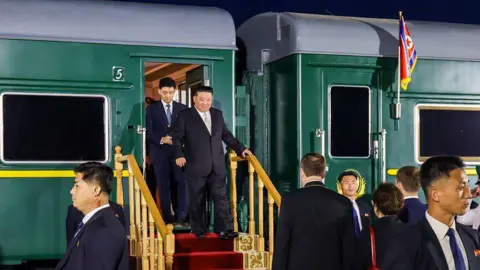Evergrande, once the largest property developer in China and a symbol of the country's economic success, is set to be delisted from the Hong Kong stock exchange this Monday after 15 years of trading. This decision marks a significant milestone for the company, which boasted a valuation exceeding $50 billion before experiencing a catastrophic fall primarily due to overwhelming debts estimated at $300 billion.
Dan Wang, China director at Eurasia Group, emphasized the finality of delisting, stating, "Once delisted, there is no coming back." Evergrande is now emblematic of the struggles confronting China's real estate market. A few years earlier, founder Hui Ka Yan was among Asia’s wealthiest individuals, but his fortune collapsed from an estimated $45 billion in 2017 to below $1 billion as the company faces bankruptcy proceedings.
The company, which had around 1,300 projects in 280 cities, diversified into sectors like electric vehicles and sports, owning Guangzhou FC, China’s most successful football club. The firm’s implosion significantly impacted the economy, given that the real estate industry, contributing approximately one-third of China's GDP, faces dire straits, exacerbated by new borrowing restrictions imposed by Beijing in 2020.
Housing market troubles have led to mass layoffs and drastic cutbacks in the construction sector, hindering consumer confidence and disposable income levels. Current estimates indicate that Evergrande’s liabilities are around $45 billion, but it has so far only managed to sell $255 million worth of assets.
Analysts such as Professor Shitong Qiao express concern over the lagging recovery in the property market, drawing parallels with ongoing issues faced by other developers, such as China South City Holdings and Country Garden. In light of this pervasive crisis, it's pertinent to evaluate the Chinese government’s response—which has included initiatives to revive consumer spending, though without direct bailouts for developers.
While Goldman Sachs warns that property prices may continue to decline until 2027, government endeavors reflect a transition towards prioritizing high-tech sectors over real estate. As China grapples with these challenges, the future of its property market remains uncertain, with little indication of a robust recovery on the horizon.
Dan Wang, China director at Eurasia Group, emphasized the finality of delisting, stating, "Once delisted, there is no coming back." Evergrande is now emblematic of the struggles confronting China's real estate market. A few years earlier, founder Hui Ka Yan was among Asia’s wealthiest individuals, but his fortune collapsed from an estimated $45 billion in 2017 to below $1 billion as the company faces bankruptcy proceedings.
The company, which had around 1,300 projects in 280 cities, diversified into sectors like electric vehicles and sports, owning Guangzhou FC, China’s most successful football club. The firm’s implosion significantly impacted the economy, given that the real estate industry, contributing approximately one-third of China's GDP, faces dire straits, exacerbated by new borrowing restrictions imposed by Beijing in 2020.
Housing market troubles have led to mass layoffs and drastic cutbacks in the construction sector, hindering consumer confidence and disposable income levels. Current estimates indicate that Evergrande’s liabilities are around $45 billion, but it has so far only managed to sell $255 million worth of assets.
Analysts such as Professor Shitong Qiao express concern over the lagging recovery in the property market, drawing parallels with ongoing issues faced by other developers, such as China South City Holdings and Country Garden. In light of this pervasive crisis, it's pertinent to evaluate the Chinese government’s response—which has included initiatives to revive consumer spending, though without direct bailouts for developers.
While Goldman Sachs warns that property prices may continue to decline until 2027, government endeavors reflect a transition towards prioritizing high-tech sectors over real estate. As China grapples with these challenges, the future of its property market remains uncertain, with little indication of a robust recovery on the horizon.



















